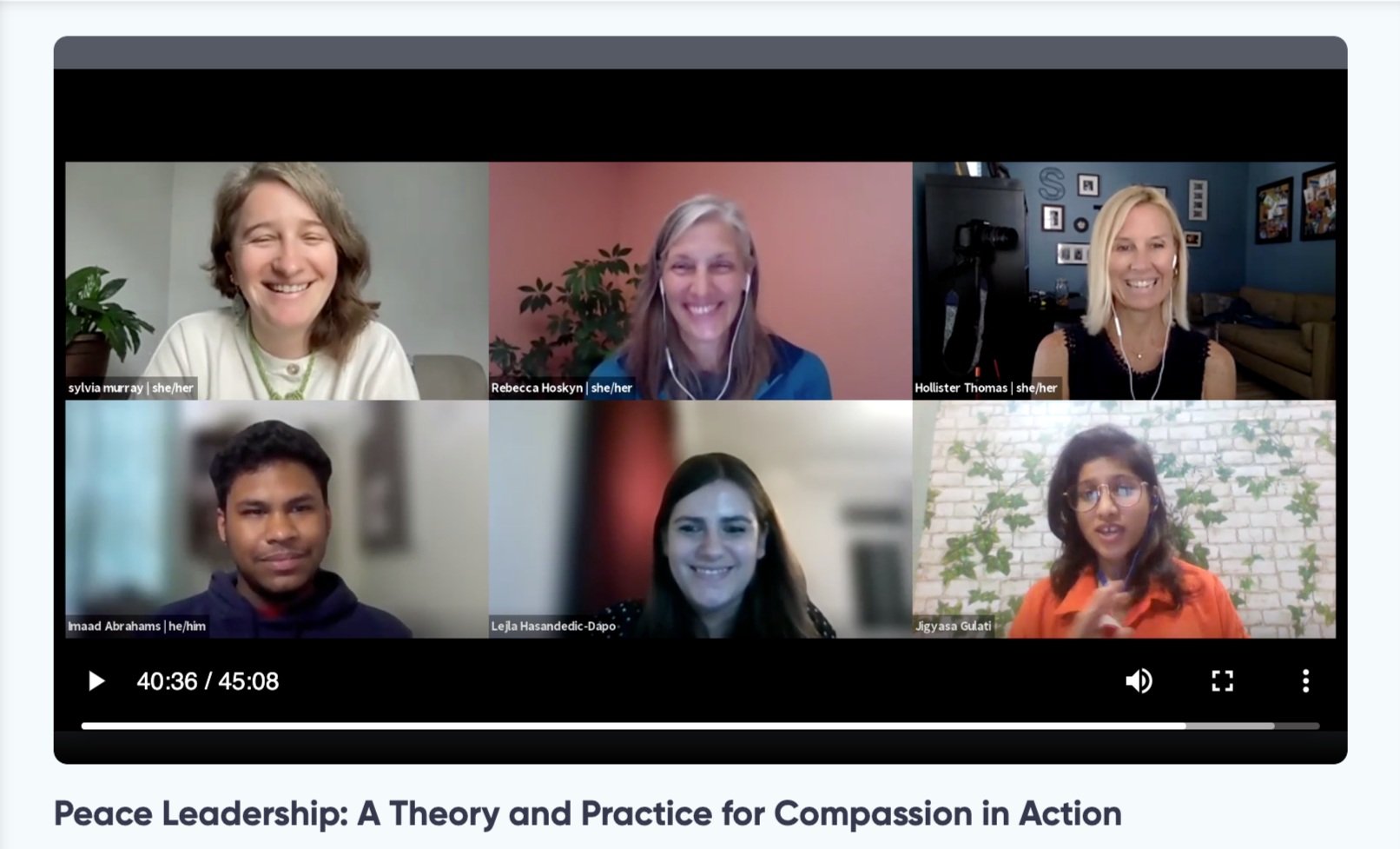Euphrates presents at The Parliament of the World’s Religions
On October 18, 2021 alumni from our Peace Practice Alliance offered an inspired session for the virtual gathering for The Parliament of World’s Religions. The theme for this gathering was “Opening our Hearts to the World: Compassion in Action.” Our session highlighted the practice and impact of peace leadership through the stories and experiences of four peace leaders from four different countries who all graduated from the Euphrates Peace Practice Alliance program. The presenters shared about what peace leadership means to them, and how, in practice, peace leadership leads to and exemplifies compassion in action. Jigyasa Gulati (Delhi, India) offered the following reflection from her experience as a panelist for this session.
Have you ever experienced that moment just before a speech or any similar situation when your brain tries to think of all possible (negative) scenarios or just tries to be perfect? My mind was showering me with all these thoughts until I closed my eyes, took deep breaths, recited a prayer, and grounded myself (PPA Module 1: Inner Peace*). I was ready for the great experience that was waiting for me!
I recently delivered this session titled “Peace Leadership: A Theory and Practice for Compassion in Action” as part of a four-member panel representing four different regions at the Parliament of the World’s Religions. It was a wonderful experience. We recorded the session some days back, and it streamed during the Parliament. The session started with a brief presentation on the peace leadership model introducing its four modules; inner peace, interpersonal peace, community peace, and global peace. As the session recording started, one thought kept nudging me, “Will we be able to cover the entire topic in just 45 minutes?” What happened during the recording gave me all the answers. Theory coming into practice effortlessly and beautifully - I was baffled and satisfied.
As we began the recording, one by one, all the panelists started sharing their experiences. We all patiently listened to each other which gave us a chance to connect, reflect, and learn from each other’s experience - a true example of active listening (PPA Module 2: Interpersonal Peace*)! I realized the commonalities that we all share and the effective application of peace leadership in different contexts. For instance, one of the panelists excellently described leadership as not being about one person leading the path, but it’s about providing the necessary support and creating the enabling environment to help the community realize their potential to lead (PPA Module 3: Community Peace*). I could instantly relate to his words and reflect on my experience of working with a refugee community in India. I work with refugees in India. Changing our vision to encourage self-reliance helped us to improve our approach. We were no longer leading, but learning and building solutions with the community.
It’s needless to mention the practice of global peace (PPA Module 4: Global Peace*), because the diversity of the session panelists is enough to reflect the same. The fact that individuals from diverse backgrounds are coming together to work towards one shared vision of building a more peaceful world, is more than enough to realize the gems of a global community.
In this way, my six months journey with the Peace Practice Alliance unfolded in 45 mins. I’m grateful that I received a chance to be a part of the global family, Peace Practice Alliance, and to share my experience at such a prestigious stage where religions beyond borders come in harmony to celebrate the work of religious and spiritual communities striving toward a more just, peaceful, and sustainable world.
Thank you for giving me memories of a lifetime!
*The PPA program follows four modules: inner peace, interpersonal peace, community peace, and global peace. These notes highlight the alignment between the Parliament session and the PPA program peace leadership model.


